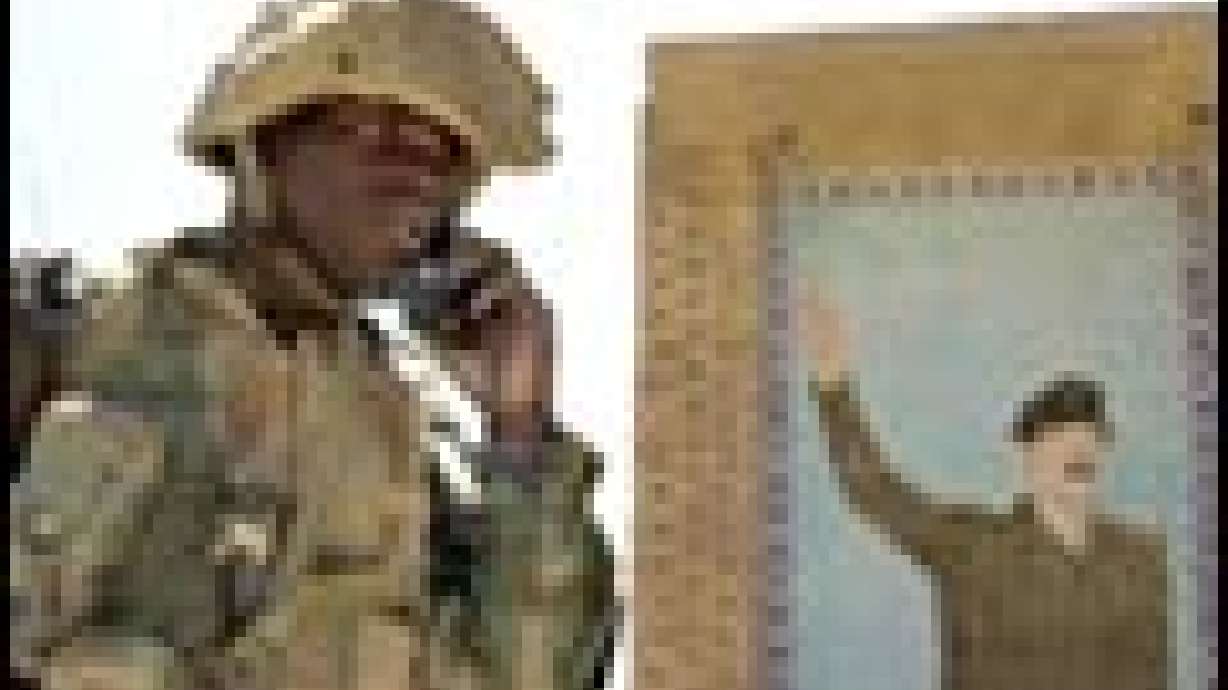Estimated read time: 4-5 minutes
This archived news story is available only for your personal, non-commercial use. Information in the story may be outdated or superseded by additional information. Reading or replaying the story in its archived form does not constitute a republication of the story.
WASHINGTON (AP) -- American forces might stop short of storming Baghdad and instead isolate it while the makings of a new national government are put in place, President Bush's top military adviser said Thursday.
Gen. Richard Myers, chairman of the Joint Chiefs of Staff, indicated the coming days might bring neither an all-out fight for the city, as many have predicted, nor a conventional siege of the capital.
"When you get to the point where Baghdad is basically isolated, then what is the situation you have in the country?" he said at a Pentagon news conference. "You have a country that Baghdad no longer controls, that whatever's happening inside Baghdad is almost irrelevant compared to what's going on in the rest of the country."
Over time, Saddam Hussein and his inner circle would lose completely their ability to communicate with Iraq's military forces, which already are in a state of disarray, and to control water and electricity, Myers said.
"Whatever remnants are left would not be in charge of anything except their own defense," he said.
In a step toward gaining control of key levers of power, U.S. soldiers launched an attack Thursday on Saddam International Airport on the western edge of the capital. Another important target may be the Rasheed military air base in southeastern Baghdad.
Although he did not rule out any scenario for Baghdad, Myers' comments strongly suggested that the intention is to bleed Saddam's government of its political and military authority without launching an all-out ground assault that would risk high casualties.
He did not suggest that it would be easy, and Defense Secretary Donald H. Rumsfeld said, "There likely will be difficult days ahead."
U.S. diplomats were caught off guard by Myers' suggestion that an interim government could begin taking shape while Baghdad is isolated by U.S. troops, perhaps for a lengthy period of time.
One senior official on Bush's foreign policy team, speaking on condition of anonymity, complained the comments could send a signal that U.S. officials are not confident of their ability to overrun Baghdad.
Rumsfeld, appearing with Myers, said U.S. ground forces led by the Army's 3rd Infantry Division and the 1st Marine Expeditionary Force had arrived "near the regime's doorstep." He did not say what might happen next, but he emphatically ruled out any deal that would save Saddam.
"There's not a chance that there's going to be a deal," he said. "It doesn't matter who proposes it, there will not be one."
He denounced those behind any talk of deal making.
"The inevitable effect of it, let there be no doubt, is to give hope and comfort to the Saddam Hussein regime and give them ammunition that they can then try to use to retain the loyalty of their forces with hope that one more time maybe he'll survive," Rumsfeld said.
Myers' remarks were the most expansive explanation of how the Pentagon hopes to avoid urban warfare.
He cited several factors that U.S. officials believe will work in their favor. Among them:
-- About half of the 5 million people in Baghdad are Shiite Muslims, who have been oppressed by Saddam's regime. "You could assume that they might be helpful" to the U.S. cause, he said.
-- At some point an Iraqi interim administration will take shape, "starting to work the post-conflict governance," Myers said. "It'll take some time. But you'll have that." He gave no details.
-- Even if the government does not collapse or fall victim to a coup, there may be no rush to dispose of it, Myers said. "You'll start working at it as you can. But one of the things you can do is be patient about that."
Also, the allies have control of Iraq's southern oilfields, which account for at least half the country's oil resources, Rumsfeld said.
Asked about oilfields in the north, he said, "We have to assume that they've been wired with explosives, as some were in the south."
However, he added that war commander Gen. Tommy Franks had ways of dealing with that problem "at the right time."
American and British forces say oil facilities secured in southern Iraq include 600 of the 1,000 wells and a crucial export terminal on the Persian Gulf. However, Iraq still controls more than 600 wells in the north, and is reported still pumping crude.
There is a small U.S. force in Kurdish-controlled northern Iraq -- about 1,200 paratroopers and other special forces units. Warplanes from the USS Theodore Roosevelt flew about 60 combat missions over the north on Wednesday, striking artillery, air defenses and troop bunkers, said officers on board.
Myers said allied forces now control about 45 percent of Iraq's territory, including all of the remote western portion, and allied warplanes have control of about 98 percent of the country's airspace.
"Some units are laying down their arms and surrendering to coalition forces, wisely choosing not to die fighting for a doomed regime," Rumsfeld said.
He cautioned, however, "The regime has been weakened to be sure, but it is still lethal, and it may prove to be more lethal in the final moments before it ends."
(Copyright 2003 by The Associated Press. All Rights Reserved.)








